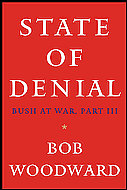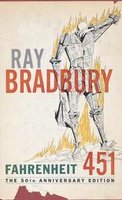 Slate's reading guide fast-forwards you straight to the good parts.
Slate's reading guide fast-forwards you straight to the good parts.Here is a quick look:
Poppy Engaged
Page 1: Though the Bush family maintains that father and son never talk about issues more substantive than fishing, the book starts with the first President Bush calling his old friend Prince Bandar bin Sultan, the longtime Saudi Arabian ambassador to the United States, in the fall of 1997. Bush's son, the governor of Texas, is thinking about running for president and he needs a tutor. Gov. Bush later tells Bandar: "I don't have the foggiest idea about what I think about international, foreign policy."
Prince Bandar, Superhero
Page 76: Bandar could also play rough. The Saudi royal family threatened to cut off diplomatic ties to Bush because they believed that he was too close to Israel and its leader Ariel Sharon. "The Crown Prince will not communicate in any form, type or shape with you," Bandar told Bush. "And Saudi Arabia will take all its political, economic and security decisions based on how it sees its own interest in the region … because it is obvious that the United States has taken a strategic decision adopting Sharon's policy."
Page 288: Bandar helps out in the end. After Bush agrees to tone down rhetoric about the need for reform in Saudi Arabia, he asks if Saudi Arabia can help purchase helicopters for Gen. Pervez Musharraf in Pakistan. Bandar says yes.
Rumsfeld Is Really a Jerk
Page 19: Soon after Rumsfeld takes office, Hugh Shelton, the chairman of the Joint Chiefs of Staff, receives a letter from a retired Navy captain who worked at the Pentagon during Rumsfeld's first tour. "The captain claimed that Rumsfeld could not be trusted, [and] that he despised the uniformed military."
Page 316: In an assessment of post-Iraq planning and execution problems, Rumsfeld's friend compares his "style of operation" to the "Haldeman model," referring to Nixon's White House chief of staff. That's like comparing a woman's skills as a mother to the
Joan Crawford model.
Former President Bush and Barbara Bush Worry About George
Page 80: After the 9/11 attacks, the 41st president called Bandar and asked him to check up on his son. "He's having a bad time, help him out."
Pages 114-15: At the Alfalfa Club dinner in Washington, Barbara Bush reached out to an old family friend, David Boren, the Democratic former senator from Oklahoma. Was an invasion of Iraq a bad idea? Boren said yes. The former first lady reported that her husband was losing sleep over the idea but wouldn't bring it up with his son.
Condi Rice Before 9/11
Pages 49–52: On July 10, 2001, George Tenet and his top terrorism expert, Cofer Black, visited Condi Rice and warned that a major terrorist attack was coming. "It's my sixth sense, but I feel it coming," said Tenet. "This could be the big one." They felt like the then-national security adviser blew them off.
Page 79: "Rice could have gotten through to Bush on the bin Laden threat, but she just didn't get there in time, Tenet thought. He felt he had done his job, laid it on the line very directly about the threat, but Rice had not moved quickly. He felt she wasn't organized and didn't push people as he tried to do at the CIA." Rice has said the July meeting was not as dramatic as Tenet remembers. Woodward quotes Cofer Black: "The only thing we didn't do was pull the trigger to the gun we were holding to her head."
Iraq Plans Baked in the Cake
Page 89: Four months before the bombing started in Iraq, while Bush was still talking about a diplomatic solution to Iraq, George Tenet told one of his CIA colleagues: "You bet your ass. It's not a matter of if. It's a matter of when. This president is going to war. Make plans. We're going." (He did not use any basketball metaphors.)
If They'd Only Listened to George Tenet
Page 90: Tenet told CIA veteran John Brennan that in his gut, he didn't think invading Iraq was the right thing to do. Bush and the others were just really naive, thinking they would just be able to go into Iraq and overturn the government. "This is a mistake," Tenet finally said.
If They'd Only Listened to Col. Steve Peterson
Pages 121-22: During the planning for the Iraq war, Army officer Peterson questioned the conventional wisdom about how Saddam might react. A logical strategy for Saddam might be to run and hide and use the Baathist cell structure to develop an insurgent army that would have weapons and explosives for a prolonged fight until the Americans grew exhausted and lost their political will.
Bush the Clueless
Page 237: David Kay, the chief U.S. weapons inspector, visited the Oval Office to brief the president about the lack of WMD and was "shocked at Bush's lack of inquisitiveness."
Page 221: Jay Garner visited the Oval Office after he began his tour leading the post-conflict reconstruction in Iraq. The president cracked jokes about ass-kissing in Washington to show he knew how the game was played but never applied his insight to the topic of how things were going in Iraq.
Page 260: By October 2003, Woodward writes: "There is little or no evidence that [Bush] engaged in much substantive policy debate at this point in the war cabinet meetings. His role was to express confidence and enthusiasm."
Page 266: In an NSC meeting in October 2003, Bush and Rumsfeld resisted using the word "insurgency" to explain the resistance in Iraq. Rumsfeld got highly semantic with the CIA briefer who used the term. Bush continued to cheerlead and warned that he didn't "want to read in The New York Times that we are facing an insurgency … I don't think we're there yet." That shocked Deputy Secretary of State Armitage, who Woodward explains thought "the giant problem now was the president's state of mind. … Bush was in denial about Iraq."
The Most Devastating One-Paragraph Account of Bush Team Dynamics
Page 241: Robert D. Blackwill, a longtime diplomat brought in to the National Security Council in August 2003, describes one of the first NSC meetings he attended: "Blackwill saw Rice try to intervene and get nowhere. So critical comments and questions—especially about military strategy—never surfaced. Blackwill felt sympathy for Rice. This young woman, he thought, had to deal with three of the titans of national security—Cheney, Rumsfeld and Powell—all of whom had decades of experience, cachet and strong views. The image locked in Blackwill's mind of Rice, dutiful, informed and polite, at one end of the table, and the inexperienced president at the other, legs dancing, while the bulls staked out their ground, almost snorting defiantly, hoofs pawing the table, daring a challenge that never came."
Powell and Armitage Muse About Bush, Cheney, and Rumsfeld
Page 143: In the run-up to the Iraq war, Powell notes that Bush, Cheney, Rumsfeld, and Rice have never seen combat. "You know," Powell says, "the problem with these guys is they've never been in a bar fight."
Pages 325-27: Powell and Armitage talk about the benefit of self-doubt. "If you didn't have it, Powell said, if you didn't get up in the morning wondering if you're doing a good enough job or if you can still hit the long ball you're not worth much." Armitage chimes in: "Not worth a shit."
Kissinger Secretly Advises Bush
Pages 406-09: Not only did the former Nixon secretary of state advise Bush and Cheney, he also offered Bush speechwriter Mike Gerson his famous "salted peanut memo," written during the first year of the Nixon administration. It claimed that withdrawal of troops from Vietnam would be like "salted peanuts to the American public; the more U.S. troops come home, the more will be demanded."
Just How Ugly Is It in Iraq?
Page 471: Charts and graphs from a Joint Chiefs of Staff intelligence assessment from May 2006 paint a grim picture of the ground truth in Iraq. Terrorist attacks were increasing, and the insurgents were gaining even after the Iraqi elections, the formation of a government, and a constitution. "Insurgents and terrorists retain the resources and capabilities to sustain and even increase current level of violence through the next year," says the secret Pentagon assessment sent to the White House. The forecast of a more violent 2007 in Iraq contradicted the repeated optimistic statements of President Bush, including one, two days earlier, when he said the country was at a "turning point" that history would mark as the time "the forces of terror began their long retreat."

